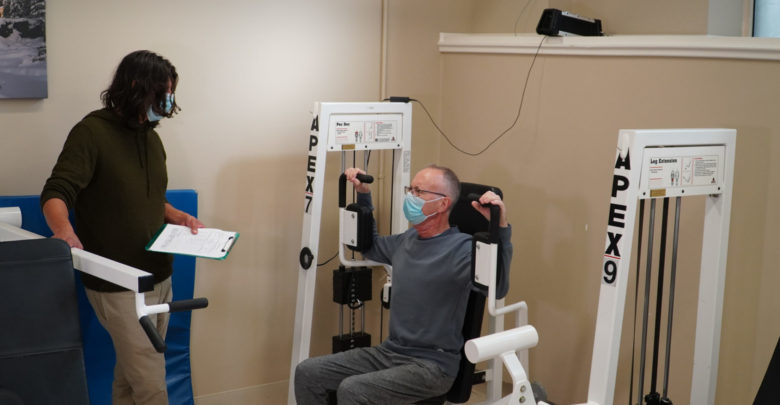 Martin Bendico
Martin BendicoA research study at the University of Alberta is helping patients better recover from cancer treatment. The Alberta Cancer Exercise (ACE) evaluates the benefits of exercise for individuals after a cancer treatment.
ACE is a free community-based program that was designed specifically for individuals undergoing or recovering from cancer treatment. The University of Alberta is the lead site for the province-wide study.
The instructors with the ACE program have received cancer-specific education. The goal of the program is to help individuals with cancer better withstand and recover from cancer treatment. Dave Jamieson, a well know sports broadcaster, was a participant in the ACE program.
In May 2021, Jamieson was diagnosed with a form of Human Papillomavirus (HPV) cancer when a three-centimetre tumour was found in his throat. In July 2021, he underwent surgery to remove the tumour. The surgery required an incision to be made from behind his left ear to his chin.
At first, Jamieson was unable to speak, smell, or taste. This was due to nerve damage to his neck and face, in addition to six weeks of radiation treatment at the Cross Cancer Institute.
A friend of Jamieson’s recommended to him that he get involved with the ACE program. He was accepted into the 12-week program in July where he began strength-building.
When Jamieson entered the program, he said his body was “destroyed” and he was barely able to lift a small shopping bag on his left side.
“I had very little left, I had no muscle, I lost over 40 pounds. There was a period in there during the radiation, I lost my ability to speak — which given my current employment was frightening.”
Jamieson said the program was “very helpful” and helped him to “very gently rebuild [and] rediscover the body.”
“I always say, I felt better leaving this program every day that I came here than I did coming in.”
In addition to the physical side, Jamieson said the program helped him mentally.
“Cancer, when you’re going through it, it can often be very lonely and you can go to some very dark places,” Jamieson said. “There’s the benefit that you get from re-engaging with your body and understanding that, okay, there’s some hope here.”
ACE also helped Jamieson to be more knowledgeable about his cancer and what it required of him. He said that the conversations he had at the program allowed him to become “smarter about [his] condition.”
“Starting with ACE and going through the programs here, you start to see okay, this can be done. There’s a lot of hope — this is a very hopeful place. The work is hard, sometimes not a lot of fun. But ultimately it’s very helpful.”
Margaret McNeely explains the success and effectiveness of the ACE program
Margaret McNeely is the lead investigator of ACE. She is also a physical therapist and a professor in the faculty of rehabilitation medicine at the U of A.
According to McNeely, the ACE program assesses the patient and determines where the problem is. This way, the program can be “really tailored to the individual.” She further explained the purpose of ACE, which stems from the fact that just telling cancer patients how to exercise is not helpful.
“It’s a big hit to the body undergoing cancer treatment, so simply giving advice to people in terms of physical activity [or exercise] often is not helpful,” McNeely said.
McNeely said that five-year funding for the program was received from Alberta Innovates and the Alberta Cancer Foundation. The program is now in its sixth year due to delays in reaching the goal sample size. These delays were related to the COVID-19 pandemic.
The program is aiming for a sample size of 2,500 participants and is currently at 2,460, with a completion rate of 93 per cent, which is “unheard of [in] an exercise program.”
McNeely anticipates that the study will close to new participants in January 2023 but said they will continue with ongoing follow-ups for the 2,500 participants. The program is working with Cancer Care Alberta and Alberta Health Services to determine how they can implement the program in spring 2023.
“Overall, it’s been a very successful program, and as the lead investigator, it’s really nice for me to see not only data supporting the benefits … but also to hear what the patients share with us about the benefit of the program.”




